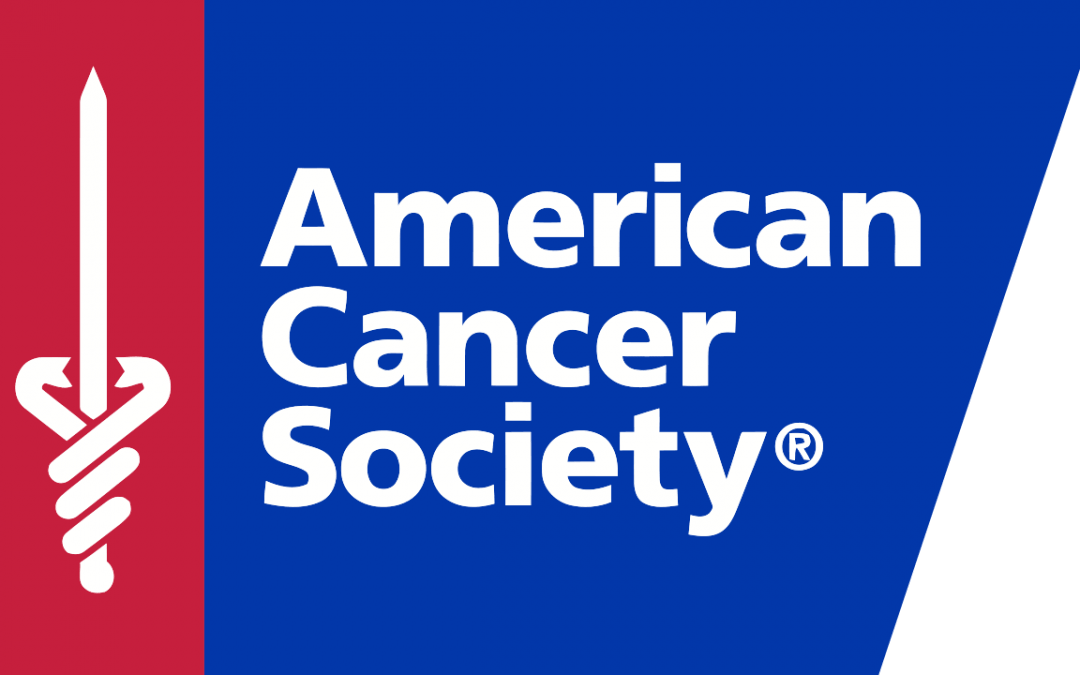Better Than Most is a regular feature of The Business of Giving, examining the best places to work among social good businesses and nonprofit organizations.
Denver: And this evening, you’ll be visiting one of the most highly respected and important organizations in the country. It is the American Cancer Society, founded back in 1913. We’ll begin the segment with their Chief Executive Officer, Gary Reedy. And then hear from the other members of a very dedicated and passionate team.
Gary: The great thing about the American Cancer Society and the culture is everybody that is working there wants to be there, and most of them have a personal connection. They’re there for a very personal reason…in some way, cancer has impacted them. So we’re very fortunate that people really want to work at the American Cancer Society.
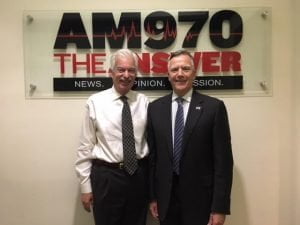 Shawn: We come in here every day, and we passionately work and do what we do but I’m humbled by every experience I have with a volunteer, especially when we are engaging our survivor population. I can tell you countless stories of being at community events where a volunteer, a survivor in particular, comes up to me and they’re teary or they’re crying and they’re thanking me for the work that I’m doing. Every time, that experience is just more humbling than the time before because we’re fortunate that we get to do this every day as our career, as our job.
Shawn: We come in here every day, and we passionately work and do what we do but I’m humbled by every experience I have with a volunteer, especially when we are engaging our survivor population. I can tell you countless stories of being at community events where a volunteer, a survivor in particular, comes up to me and they’re teary or they’re crying and they’re thanking me for the work that I’m doing. Every time, that experience is just more humbling than the time before because we’re fortunate that we get to do this every day as our career, as our job.
Austin: I started here about three years ago. I came from the startup culture. I worked in tiny little companies that were smaller than the size of this office, we’re sitting in right now. Everyone warned me. They said, it was going to be big, it was going to be slow, it was going to be rigid. You don’t know what you’re getting into. That was my worry coming into ACS, and I have to say, it’s been completely opposite. What that means to me is that the behavior that was encouraged to us was open feedback and solutions-oriented communications.
Donna: But I think also another thing that a new employee might experience is that the work is really hard but that we have fun while we’re doing it. We celebrate each other, our milestones and our careers and in our personal life.
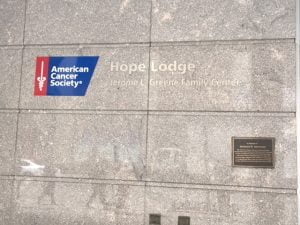 Ashley: Talking to my friends who work in other nonprofits and also work in other industries especially around New York City, it found that a lot of people are really miserable. Just very overworked and unhappy and not fulfilled. I don’t have any of those complaints. For one, the mission is obviously really strong, and there’s a sense of purpose coming to work every day beyond the paycheck, and I think that goes a long way. It may sound cliché but it really does. The other thing is, there’s a lot of flexibility here. You have the flexibility if you need to work from home. You’re not constantly stressed about it.
Ashley: Talking to my friends who work in other nonprofits and also work in other industries especially around New York City, it found that a lot of people are really miserable. Just very overworked and unhappy and not fulfilled. I don’t have any of those complaints. For one, the mission is obviously really strong, and there’s a sense of purpose coming to work every day beyond the paycheck, and I think that goes a long way. It may sound cliché but it really does. The other thing is, there’s a lot of flexibility here. You have the flexibility if you need to work from home. You’re not constantly stressed about it.
LaToya: That’s a training that we have internally that I really took seriously because this organization is also one that I consider saved my life. They funded the research that founded the drug Herceptin which I’m a proud recipient of. I must say, I’m going on 11 years of being a survivor. I come from an environment where cancer has stripped my family apart. I look at it now that I have found my passion, I truly believe in the mission, and I have got liberating my mind. It empowers me to be that change that want to see within the workplace, within health systems, and anywhere I go, people that I touch, this place is truly like my family. They take care of me. They celebrate birthdays, survivorship, and I just miss these people on the weekends. I really love working for this organization.
Katie: The mission and the values held here match my personal values. I don’t think a lot of people can say that about where they work. I feel like we have the opportunity to make a difference. If we’re fund raising to raise money for research, and I’m a big nerd. So, all our Nobel Prize winners are a point of pride for me. That’s great. But the thing closest to my heart is when I have an opportunity to be able to talk to a patient or a caregiver and make a difference and make a difference in their lives. That’s what really pushes me and pushes me forward. I have been given many opportunities to work here. That’s what I think kept me here.
Christina: I guess what I can say is having worked in other places prior to coming to the American Cancer Society, what really strikes me here is the level of teamwork that happens in this organization. We are all in together and if we need to get something done, everyone is just willing to pitch in and help one another and put everything aside to get done. To me that’s just so incredible to feel that amount of support and team work. People are incredibly kind here. I know we hear the words servant leadership all the time. I feel the kindness, and people are genuine. I do feel that this is a culture where I can trust my colleagues and that to me is worth so much.
Robert: Recently, I discovered that not only the event that that I manage is heading our 25th anniversary but that six other events in our area are also celebrating that milestone, so I was able to get those of us who work on the events together to form a work group, and I have the ability to lead that group and have an effect of the outcome and how we can really make this milestone special this year. I really received a lot of support from my leadership and my managers to come up with the best ways to make this effective. In a way, they are very collaborative and very supportive of my efforts.
Kwame: I think that striking that work-life balance is very important. It prolongs your life. There are so many added benefits to having a flexible culture in your organization. It’s something that I have greatly appreciated. Where I am in my life right now, where I’m talking about starting a family and all that good stuff with flexibility means that much more when I talk about kids and all that crazy stuff. I think there’s so many other great things about the company but to start off, I think flexibility is the most important thing.
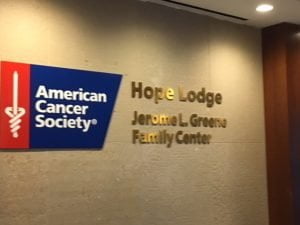 Marlene: So, when I came over to the American Cancer Society, it was something that was a breath of fresh air. I’ve grown a lot in the organization. I’m proud, and I’m thankful for those opportunities because I still continue to grow every day. Whenever I say I work for the American Cancer Society, people automatically say, thank you. It makes me feel good because even though I might not have personally helped that person, it feels good to know that I work for an organization that touches so many people. That is definitely my proudest moment.
Marlene: So, when I came over to the American Cancer Society, it was something that was a breath of fresh air. I’ve grown a lot in the organization. I’m proud, and I’m thankful for those opportunities because I still continue to grow every day. Whenever I say I work for the American Cancer Society, people automatically say, thank you. It makes me feel good because even though I might not have personally helped that person, it feels good to know that I work for an organization that touches so many people. That is definitely my proudest moment.
Chloe: Any opportunity, I’m in front of people, the food store, the restaurant; you name it. I’m talking. I think that’s something that when you’re with friends and family, sometimes they’re, alright Chloe, enough with the ACS stuff. But it’s so ingrained, and I’m always, wow, how can we leverage this opportunity? What’s that connection? How could I help that person in the community? For me I guess it’s a cautionary note but it’s also a point of pride that I have and feel in working with this organization that anywhere I go, I am talking about what we do. I’m excited about what we do.
Donna: We have a number of different ways that our leaders communicate with us. Our CEO, Gary Reedy, we have an internal television talk show called Society Talk where it’s Gary Reedy and others who speak with our employees and there’s definitely an opportunity for two-way communication where people can type in their questions and our host, Desiree Berenguer-Carton, gives him some tough questions. Sometimes head on. He takes the questions and answers.
Iraisa: I’ve noticed a great effort from not only the region but national as well on inclusion, on diversity, on forming an organization that’s inclusive of all. Because that makes it strong. That makes it diverse. That makes it open to different walks of life, different genders, age; all that good stuff. Again, just very brief. What I have seen the dedication and the effort from Gary to VPs to the leaders to form a strong population within ACS that’s again, very inclusive and very diverse.
Kris: Transparency is actually one of the reasons that I’m most proud to work here. We are an organization coming on our 105th year. Certainly, over those decades, but the last two that I’ve been a part of, there’s just been a steadfast commitment to really being honest with the public and our donors about what we’ve been able to achieve and the list is long but also where we fall on short. If we set out to reduce mortality by X percentage, and we almost get there but not quite or reduce incidence rates; we let the public know exactly where we ended up and where we again fell short. I think that’s important for them to understand that this is a long journey and it’s a hard fight. But also they need to understand exactly how we are stewarding their donor dollar. Every year, we publish a report that I’m very proud of, that everyone can get online, icancer.org. It’s called the Stewardship Report. We really delineate how we measured up and so for that and so for many other reasons, I’m very proud. I’m also proud that we are absolutely, perhaps sometimes to a fault, a data-driven organization.
Gary: We have to take risks. We have to be aggressive because we’re here to help eliminate cancer. So we have to change things up and do things differently and constantly change. I’ve told the entire staff and volunteers that as long as I’m in this position, we will constantly be changing because the world is changing. So we have to keep on changing and trying to improve ourselves.
Denver: I want to thank all those who participated in this piece. Donna Gulotta, Shawn Triggs, Chloe Lipman, Austin DeSavino, Ashley Engelman, Iraisa Jones, LaToya Williams, Christina Faber, Kristina Thompson, Robert Fox, Kwame Sheehy, Marlene Medina and Kris Kim. To listen to this again, or see pictures of the participants and the offices, just go to denver-frederick.com and we’ll have posted for you there my full interview with Gary Reedy the Chief Executive Officer of the American Cancer Society.
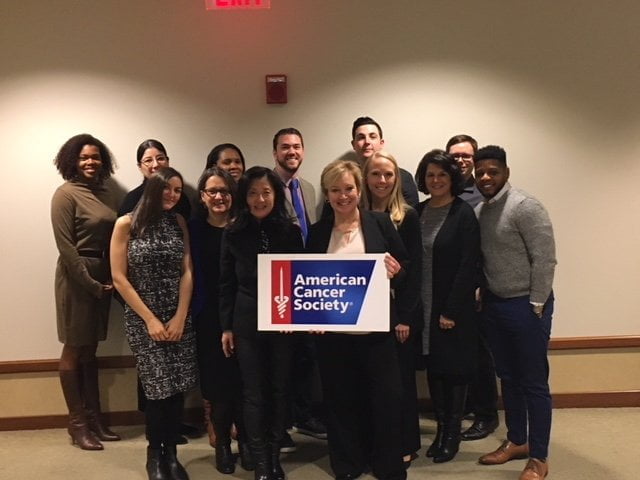
The Business of Giving can be heard every Sunday evening between 6:00 p.m. and 7:00 p.m. Eastern on AM 970 The Answer in New York and on iHeartRadio. You can follow us @bizofgive on Twitter, @bizofgive on Instagram and at http://www.facebook.com/BusinessOfGiving

